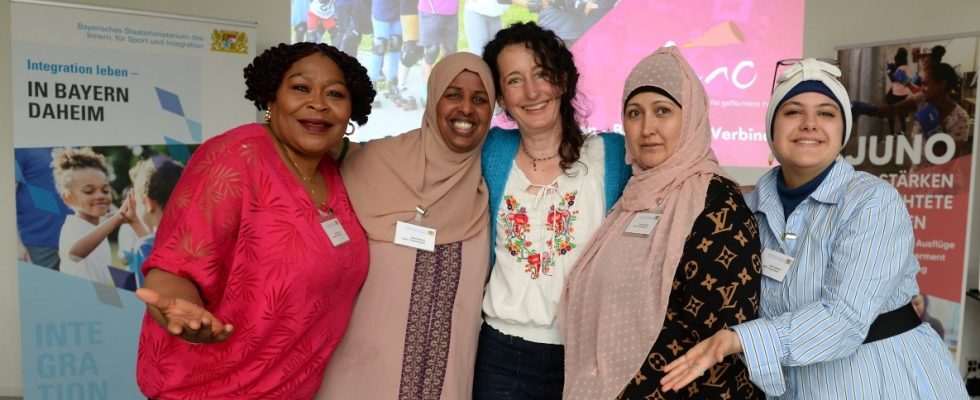They have met many new people here and made friends, report Masume and Habibe Jafari. They are sitting in the Luise cultural center and are waiting for the “Juno: A voice for refugee women” project to be presented. The two Afghan women go to the events regularly, every Tuesday they meet in Juno’s women’s café. There they can chat, play games, test their German or even box. “I did it here for the first time,” says 29-year-old Habibe.
Refugees have hardly any places to meet locals, says Britta Coy. She is the project manager of Juno, which is supported by the Association for Women’s Interests. The women should practice the German language in a safe space – and forget their problems for a moment. The project supports integration with open meetings, various sports and cultural offerings, visits to training fairs and workshops. Since this year, women have also been encouraged to do voluntary work themselves. There are no entry requirements, every woman is welcome.
The project has been active since 2016. In the beginning there were 40 women, now there are 800 – plus their children. Juno is supported by the Free State of Bavaria with 118,000 euros. The surcharges from the Ministry of the Interior and the city are “extremely important,” says the director. Even with further donations and the support of some foundations “it’s not enough at all”. They have long been at their capacity limit.
There are too few such projects, especially in rural areas, says Coy. These are important in order to reduce fears and prejudices. “The people who scold the loudest have the least contact.” In order to draw attention to itself, the project is presented in the Luise cultural center. On Friday, the Bavarian Minister of the Interior, Joachim Herrmann (CSU), who is also responsible for integration, stopped by for a visit. “I hope that he sees how much we miss out on for our society by wasted opportunities,” says Coy, “and how much our women could contribute if the framework conditions are right.” According to the manager, it would be nice “if things were handled as easily and flexibly as they are with the Ukrainian refugees.”
The Bavarian integration policy does not make their work any easier, criticizes Coy. Many refugees would lose months and years before they could take German courses or work. “No wonder there is dissatisfaction in society.”
The refugee women also take advantage of the minister’s visit and demand affordable housing, easier access to training opportunities, faster asylum procedures and more information from the authorities. Many of the women would like to work in the care sector, says Coy, but are unable to do so due to the political environment. “They speak the language, know the culture and would like to work here,” she says – but instead of giving them a chance, nurses from other regions, such as Asia or South America, are hired.

